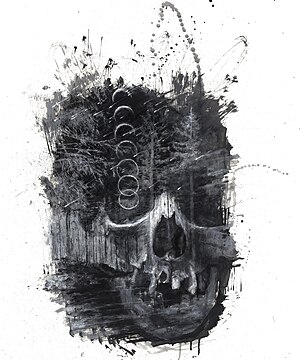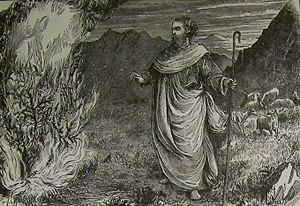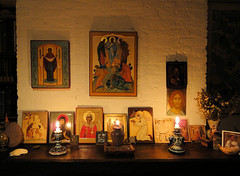What do you think of when someone mentioned the God of the Bible?
A fickle sky deity worshiped by a collection of allied city states from Bronze age Palestine that merged to become the ancient nation of Israel? Perhaps an image of an old white haired sovereign on a celestial throne?
Perhaps you think instead of socially conservative religious leaders and their political allies and the things they say in the name of God. Or various injustices of history committed in the name of God.
If you do think of such things, you are far from alone. But like my
unsolicited advice to Western convert Buddhists (1), one can ask what may be obscured by such reactions.
This kind of reaction is something many Christians seem to be at a loss over. Here is one take on that loss.
All human knowledge and experience is mediated through and embedded within symbols and analogies, especially in the shape of metaphors. Knowledge and experience is also mediated by and has embedded within it moral (how things are/how things ought to be) and emotional content. This is all woven together into narratives or stories at the level of individuals, communities, and societies.
We are more likely to trust someone whose narrative has a structure and interpretation lines up with our own in key ways, or with whom we have more intimate social and emotional connections. Its reciprocal. If I trust you, I trust your worldview. If I trust your worldview, I trust you.
Religion offers, among others things, a communal response to the spiritual impulse (seeking connection and purpose through integration into higher orders of structure and meaning) rooted in an existential narrative (a story about why we exist). This narrative takes the forms of myth, a story connecting an ahistorical origin of a people ("Long ago..." "Before the world began...") to a moral vision of the contemporary world -- how the world is, ought to be, and will be.
In many contemporary, industrial, post-Enlightenment societies the symbols and images associated with Christianity, its mythology, and its ritual institutions have become problematic.
For those with little knowledge of the religion itself or of its theology and history, the symbols, images, and references to Biblical and non-Biblical stories of faith hold little meaning except for their association with the most visible aspects of Christianity such as televangelism, homophobic and sexist political tirades, and the sex abuse scandals.
For those with limited but intense exposure, such as people who grew up in a socially conservative and fundamentalist evangelical form of Christianity and abandoned it as ignorant, deceptive, or intolerant, the moral/emotional association with the symbols, images, and stories can be downright toxic.
Then there is the fact that some symbols and images and allusions to Biblical stories are so ubiquitous that the over-exposure dilutes anyone but the loudest/most visible interpretations, feeding into and reinforcing the views already described. Add in that this does not come with the widespread and developed sense of cultural literacy needed to make sense of or engage these ubiquitous elements the social smog surrounding Christianity becomes even thicker.
So is Christianity doomed? What can the Church try that it hasn't pursued already? Jump below the break to find out.





















